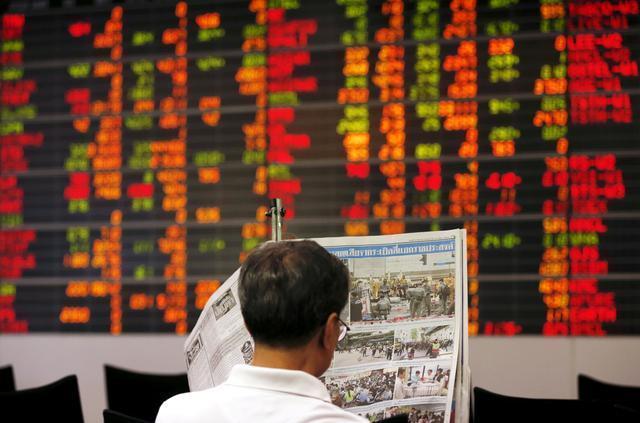The Central Bank’s Monetary Policy Committee (PPK) lowered the interest rate by 100 basis points from 16% to 15%. It is worth nothing that the PPK announced the decision with a 5-minute delay (at 2.05 pm instead of 2.00 pm) for the first time in its history. This shows weakness of communication and the Central Bank (CB) has experienced communication failures for a while, according to analysts.
More importantly, the CB said the temporary inflation increase caused by the rate cut may continue through the first half of 2022. The PPK will consider completing the use of the limited room in December, according to the PPK statement. These statements have led the market to interpret that there is no clear direction determined by the PPK and many analysts predict that the interest rate will be further reduced by 100 basis points in December. Analysts also said the CB didn’t give indicate if it would stop the rate cuts in the first few months of 2022. Therefore, stopping the devaluation of TRY doesn’t seem possible. Economists estimate the year-end policy rate will be14%, while the year-end USD/TRY is likely to hover around 11.30-11.50.
USD/TRY, which dropped below 10.50 before the PPK’s decision, exceeded 11.10, rising 5% in a day. It fell to 10.98 this morning.
The CB has completely swept aside the fight against inflation while it concentrates on growth, according to Daily DUNYA Columnist Tugrul Belli. “They tried to reduce the interest rate with different policies and reasons. But we can’t see this reason this month in their statement,” Belli said. “Reducing the current account deficit (CAD) by increasing inflation isn’t realistic. Inflation increases mean acceleration of domestic activities and losses in foreign exchange (FX) rates. Balancing the CAD and preventing FX pressures coming from the CAD, as well as reducing FX rate pressure in the upcoming period isn’t realistic.”
TRY is open to speculations for now, according to the University of Economics and Technology (TOBB ETU) Lecturer and Associate Professor Atilim Murat. “The PPK doesn’t clearly state whether it will further lower the interest rate or not. Negative pricing will continue since the market will expect the interest rate cut,” Murat said. “TRY has been left vulnerable after the CB stated that it doesn’t attach importance to FX rates. Pressure on TRY will continue,” he added.
The market reaction was negative for TRY and the bond market, while it was positive to the stock exchange and especially to the shares of banks, according to Is Yatirim Research Director Serhat Gurleyen. Is Yatirim, the investment bank arm of Isbank, has increased its inflation forecast from 20% to 21% for the end of 2021 due to a 25% loss in the value of TRY in the last three months and an expected additional 100-basis point interest rate cut in December.
Turkish exporters suffer from the volatility in FX rates and unpredictability of TRY depreciation, according to Simone Kaslowski, President of the Turkish Industry and Business Association (TUSIAD). Speaking to Journalist Murat Sabuncu from T24 before the PPK’s decision, Kaslowski said: “Despite the discourses about the interest rate cut and cost reduction on the company side, FX rate-driven damage is more costly in the balance sheets. Although we lower the policy rate, it doesn’t reflect on the long-term loan interest rates.” The CB’s policy rate cuts don’t positively reflect on the market interest rates and the economy, according to Kaslowski.
The first statement following the PPK’s decision came from Sekib Avdagic, President of Istanbul Chamber of Commerce (ITO). He said the tie between the market dynamics and the CB policy rate gradually weakens. “Predictability is the primary concern of the business world. The main point now is FX rates’ unpredictability rather than high inflation or the interest rate. The rise of FX rates and inflation adversely affect the risk premium and dollarization in Turkey. We want predictability to rise of to the highest level, in order to balance the interest rate and inflation and save the business world from the inaccessible pricing as soon as possible.”
DAILY AGENDA
The Agricultural Input Price Index (Agricultural-IPI) rose by 27.79% in September, compared to the same month last year, according to the Turkish Statistical Institute (TurkStat). The Agricultural-IPI surged by 1.56% on a monthly basis.
The number of newly established companies dropped by 9.0% from 10,260 to 9,336 in October, compared to the same month last year, according to the Union of Chambers and Commodity Exchanges of Turkey (TOBB). The number of closed companies surged by 18.9% from 1,261 to 1,499 in the same period.









